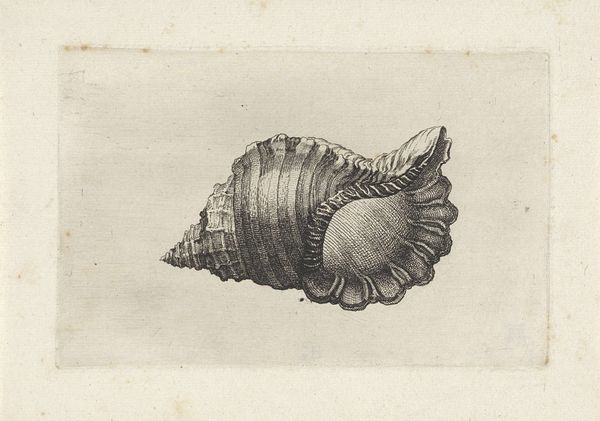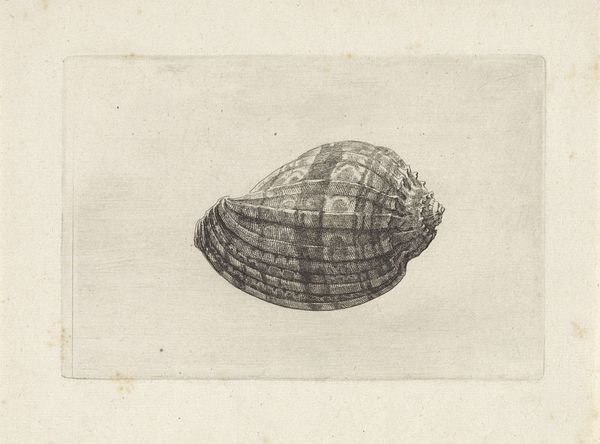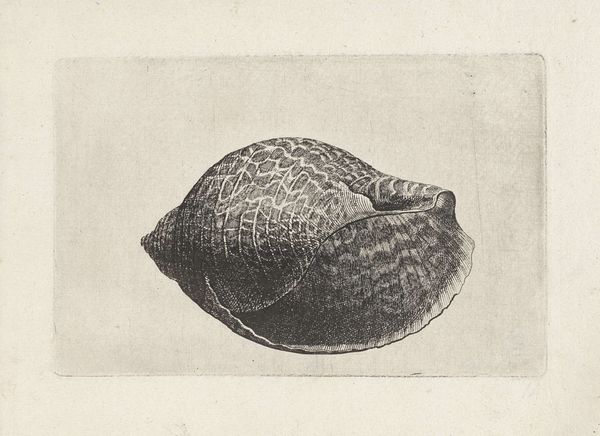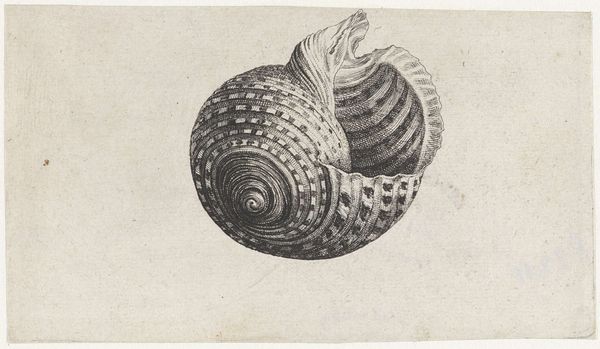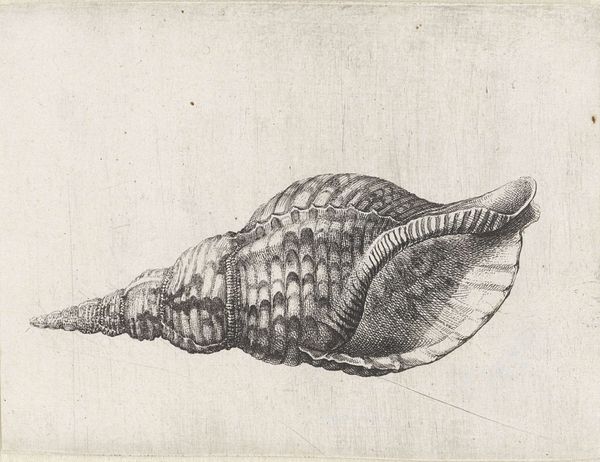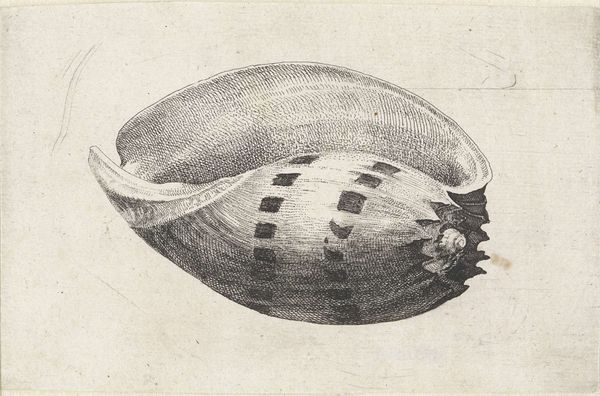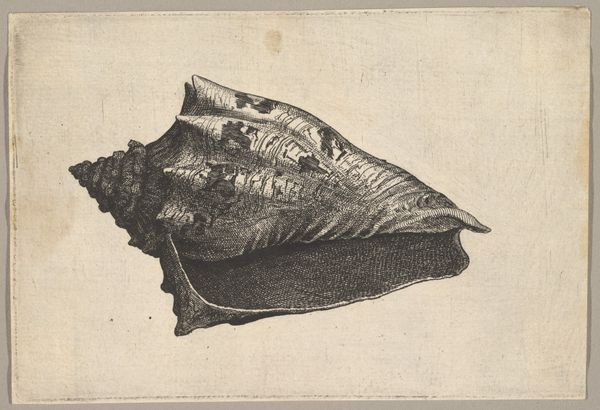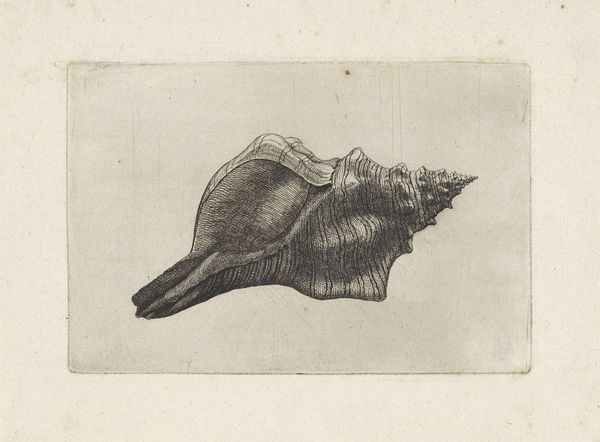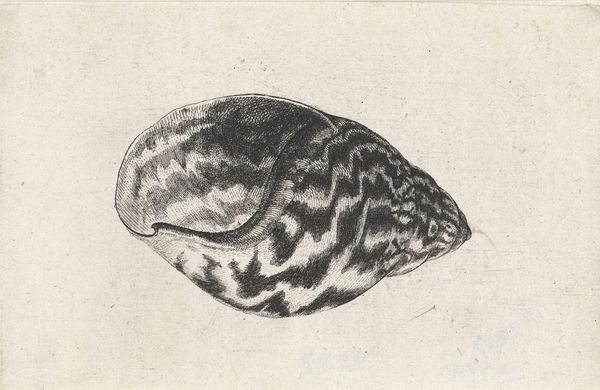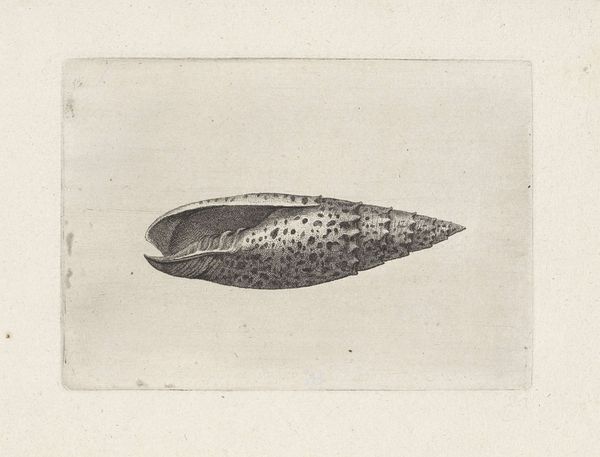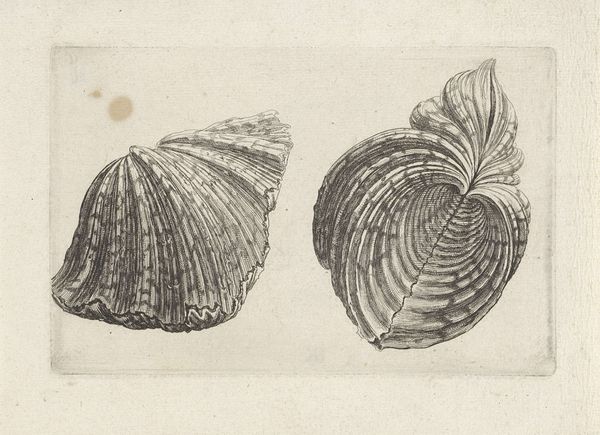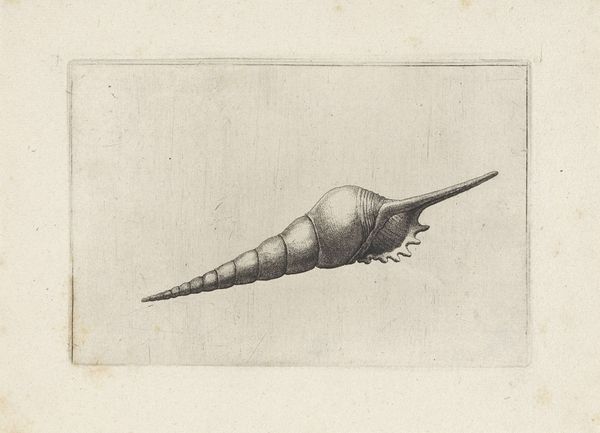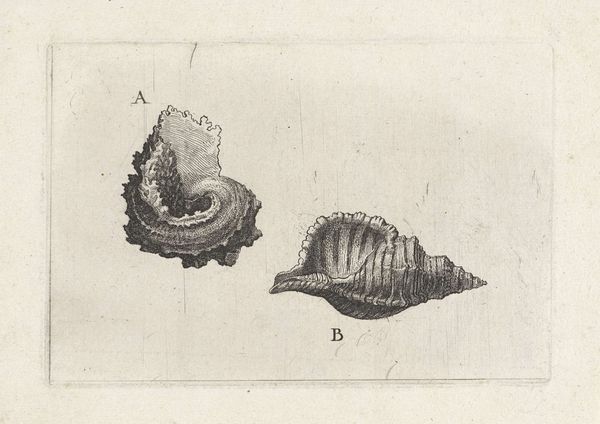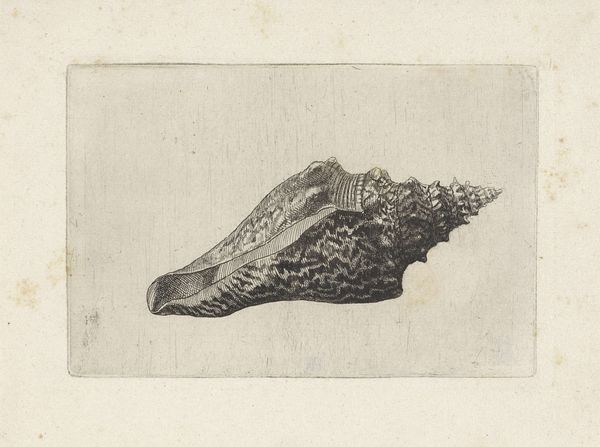
print, engraving
#
baroque
# print
#
old engraving style
#
geometric
#
line
#
engraving
Dimensions: height 94 mm, width 141 mm
Copyright: Rijks Museum: Open Domain
Wenceslaus Hollar made this etching of a tulip shell, or ‘fasciolaria tulipa’, in the 17th century. The shell's intricate patterns are meticulously rendered through fine, delicate lines, showcasing Hollar’s skill as a draughtsman. Made in the Dutch Golden Age, this unassuming image reflects a broader cultural fascination with the natural world, driven by global trade and exploration. As Dutch merchants and explorers traveled the world, they brought back exotic specimens, sparking curiosity among scientists and collectors. Etchings like this played a vital role in disseminating knowledge, allowing people to study and appreciate nature from afar. These printed images circulated as part of a growing market for art. Hollar worked for patrons who commissioned him to create images for scientific publications. By examining these publications, and other visual material from the period, we can appreciate the social conditions in which this image was made.
Comments
No comments
Be the first to comment and join the conversation on the ultimate creative platform.
